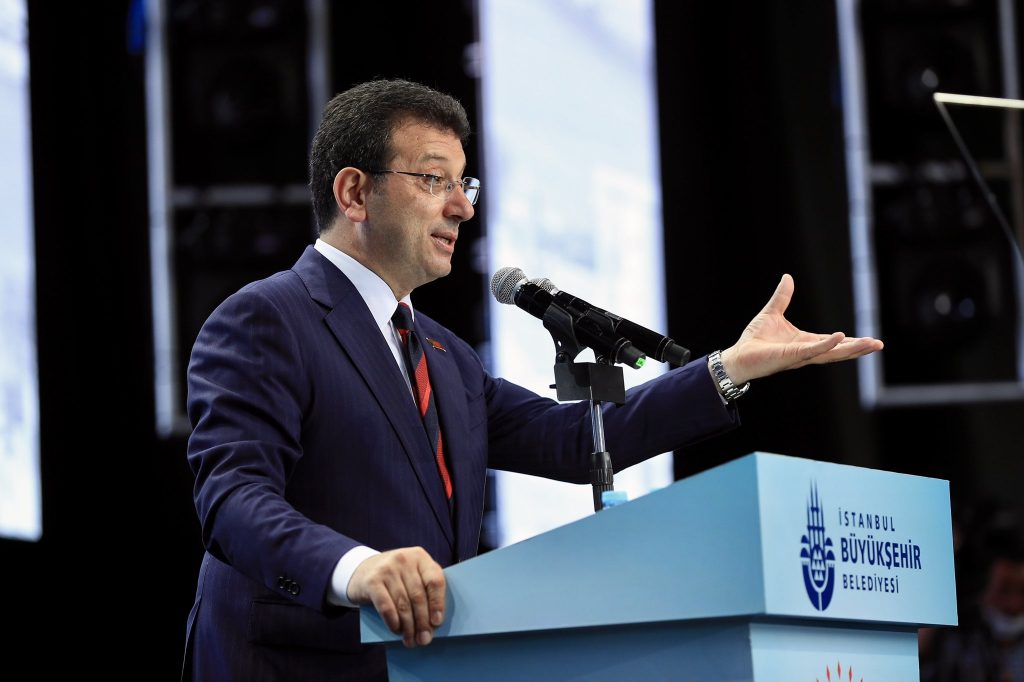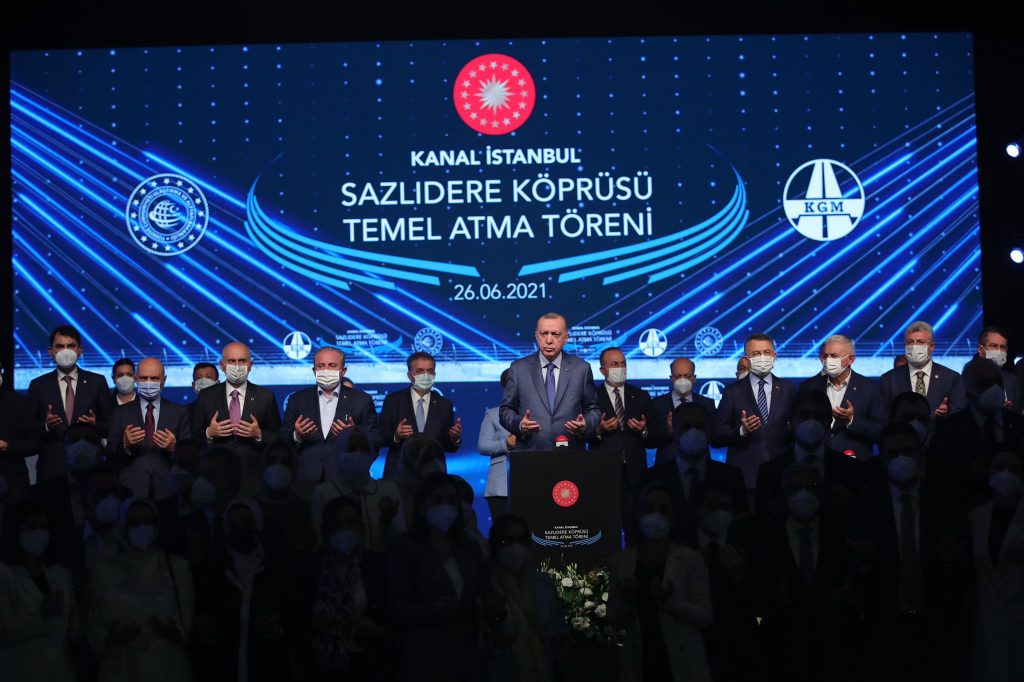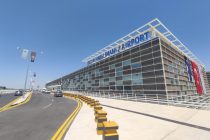President Recep Tayyip Erdoğan laid the first foundation stone for his latest multi-billion dollar infrastructure project, Kanal Istanbul (Istanbul Canal) on Friday, 26 June.
The event marked the official start of the construction of the canal that, when completed, will offer an alternative shipping route to the busy Bosporus Straits.
Accompanied by Adil Karaismailoğlu, the Minister of Transport and Infrastructure, the two men took part in the groundbreaking ceremony for a 1.6 km bridge that will be built across the Sazlıdere Dam. It is one of six viaducts being built as part of the mega project.
“We view Kanal Istanbul as a project to save Istanbul’s future,” the Turkish President told those present at the ceremony, adding “We are opening a new page in the history of Turkey’s development.”
Kanal Istanbul is a 45-kilometer (28-mile) long waterway that will link the Black Sea with the Sea of Marmara. Build at a depth of 21 metres, the canal is set to take six years to complete and will cost around $15 billion.
Alongside the canal, the venture is expected to spawn two new cities on either side of the waterway outside of Istanbul that houses in excess of half-a-million people.
President Erdoğan first aired his canal idea a decade ago. He dubbed it his “crazy project” and, without a doubt, it is his most ambitious venture of his eighteen years at the helm of Turkey.
To give the Turkish President his dues, his Justice and Development Party (AKP) government have a strong track record in delivering spectacular transport infrastructure projects that have transformed Turkey.
In Istanbul alone, there has been the historic Marmaray Tunnel for rail (opened in 2013) and Eurasian Tunnel for road traffic (2016), which both run under the Bosporus – the sea that bisects the city’s European and Asian sides.
Under AKP, the city received a much needed third Bosporus Bridge, the Yavuz Sultan Selim Bridge (2016), and a brand new mega Istanbul Airport (2018).
Yet plans for Kanal Istanbul, like Istanbul Airport before it, has met with fierce opposition. Chief among the critics is Istanbul’s Mayor Ekrem İmamoğlu, who pledged to fight the canal project in his 2019 election manifesto.

İmamoğlu claims the project would “annihilate” water resources for the city’s 16 million residents and irreparably damage the natural environment. The canal’s construction will be through woodland which supplies some 40% of the city’s fresh water.
Other objections centre on the view the canal will result in higher levels of pollution between the two seas at a time when Turkey is already plagued with “sea snot” or marine mucilage in the Sea of Marmara.
While the government claims their studies show the project will be “eco-friendly”, the Mayor’s concerns are shared by environmental experts and political leaders including Kemal Kılıçdaroğlu, leader of the main opposition Republican People’s Party (CHP) and Meral Akşener, head of the opposition İyi (Good) Party. Opinion polls show few Istanbullites want the canal either.
Russia is also concerned that the new canal would not be covered by the 1936 Montreux Convention. The international treaty restricts the passage of non-Black Sea states’ warships through the Bosporus.
The government claims that Kanal Istanbul is vital to cater for the growing number of ships that pass through the Bosporus Straits that lies between the Black Sea and the Sea of Marmara.
Türkiye || Kanal İstanbul ile Avrasya’nın lojistik ve ticaret merkezi olacak.#Kanalİstanbul küresel kalkınmadaki kilit ülke pozisyonumuzu güçlendirirken, ülkemizi dünya ticaretinde liderliğe taşıyacak.#KanalİstanbulKazananTürkiye pic.twitter.com/WfuttW6GI3
— Adil Karaismailoğlu (@akaraismailoglu) June 27, 2021
Currently, 43,000 ships sail through every year, with numbers likely to reach 78,000 by 2050. Yet the number of ships considered “safe” by for the Bosporus is 25,000.
The government claims these significantly higher numbers mean longer and longer waiting times for access to the already congested Straits, making the canal a necessity.
The Opposition have vowed to cut funding for the project if they get into power.





